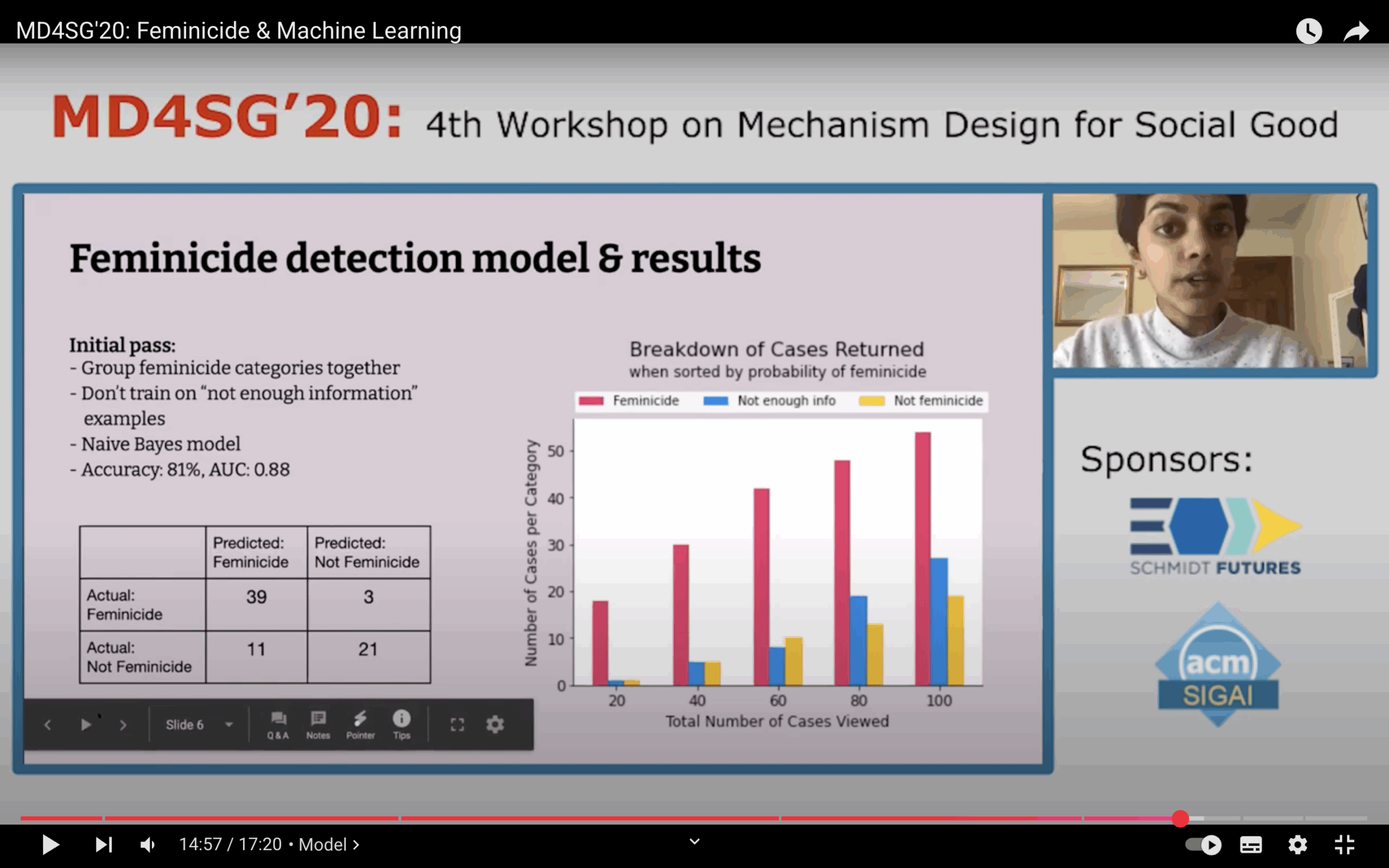Gender-related violence against women and its lethal outcome, feminicide, are a serious problem in Latin America and the Caribbean (LAC), as they are in the rest of the world. Although governments have passed legislation criminalizing feminicide, these laws have not been accompanied by relevant policy nor by robust data collection that measures the scope and scale of the problem. Drawing from Data Feminism, we situate feminicide data as “missing data” and describe the work of activists and civil society organizations who attempt to fill in the gaps by compiling incidents of feminicide from news reports. Activists doing this work face challenges: lack of time and financial resources, difficulties in accessing official data, and the mental health burden of reading about violent deaths of women. In this article, we describe our work-in-progress on a participatory action research project designed to help sustain activist efforts to collect feminicide data by partially automating detection using machine learning. We created and labeled a data set for identifying feminicide from media reports and trained a model using this data. The accuracy of the model on our test data set was 81.1%, which shows promise for reducing the labor required to identify and log feminicides, among other potential benefits. We outline our ideas for deploying this model as part of an interactive feminicide notification system, drawing from a co-design process with activists. In the discussion, we raise on-going questions and unresolved tensions that we continue to reflect on while undertaking this work.
D’Ignazio, C., Suárez Val, H., Fumega, S., Suresh, H., Araujo Cruxên, I., So, W., Martinez Cuba, A., & García-Montes, M. (2020, agosto 17). Feminicide & Machine learning: Detecting Gender-based Violence to Strengthen Civil Sector Activism. Mechanism Design for Social Good (MD4SG ’20), online. https://www.researchgate.net/publication/359339303_Feminicide_Machine_Learning_Detecting_Gender-based_Violence_to_Strengthen_Civil_Sector_Activism

